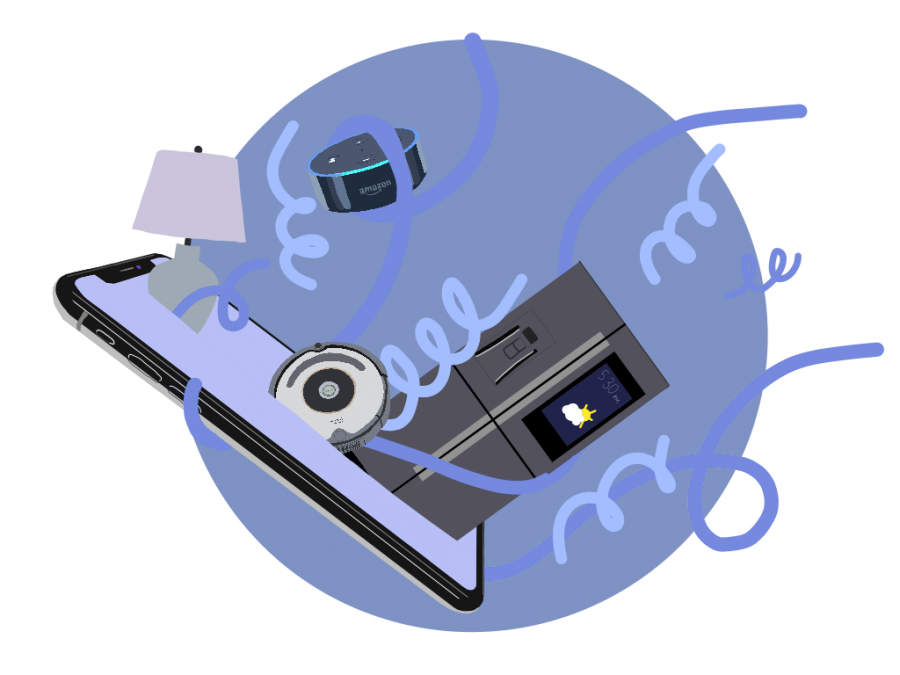Advanced appliances
Is technology in home devices positive or negative?
March 4, 2019
The day is young as the morning routine starts. You turn on the toaster, which by now has learned the preferred degree of toasting and proceeds to make it. As the ironing oven presses clothes, an alert from the fridge announces the leftovers from a week ago are most likely bad.
The appliances of the future are coming, and with it comes the bundle of third-party companies eager to munch away at your personal information. Many accessories that come with these new appliances relay data collected about you to other companies, who use this information for their personal gain.
One of the most notable of these next-generation technologies are devices that utilize voice commands. These devices register your voice, understand the question and answer or accomplish the task you asked it to do.
These devices have a dark side, however. Many devices, including Amazon Alexa, track and store conversations where one has used the electronic. This data is kept for future analysis and stored indefinitely in cyberspace. Third party companies can, later on, buy this information and use it for their personal gain.
Another unlikely frontrunner for security breaches is the smart refrigerator. Most current smart fridges track just basic items such as food consumption and allow for email sync. Concerns with smart fridges are mainly associated with the security of the information and the information being gathered. It is reported that based on your selection of foods, companies can accurately predict your race and possibly even one’s age.
Smart technology has spread to other lesser appliances, too. Lamps that turn on and off responding to one’s voice, personalized coffee machines, and robotic vacuums such as Roomba are just a handful of the many devices being decked out in tech.
As innovations in the appliance industry improve, it would not be surprising to see most basic household commodities be upgraded to some sort of “smart” device. One must make the decision whether or not they want to own these new products. Is being able to check the weather on one’s fridge worth the possible leakage of data?















